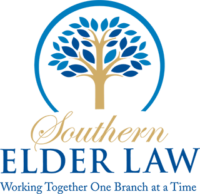The Aid and Attendance benefit is available to many qualified Veterans and their surviving spouses to help pay for their long-term care. As an accredited Veterans Aid and Attendance attorney, we can assist you in determining what benefits you may be eligible for and achieving qualification.
For those who qualify, this benefit usually means over $2,130 (2019) for an eligible veteran and spouse to $1,209 (2019) for the surviving spouse of an eligible veteran; all tax-free cash per month (paid directly to the veteran, surviving spouse, or their representative). We have more information you can learn about this important benefit, but the one thing most visitors to the site want to know is do I qualify.
Applicant Status Maximum Monthly Benefit Allowed (2019)
Married $2,230
Single $1,880
Widow $1,209
These figures change each year based upon cost of living adjustments provided for by the VA.
VA Qualification Rules
A veteran and/or spouse needs to require assistance with Activities of Daily Living (ADLs) in order to qualify for the Aid and Attendance benefit. Once a physician has completed documentation verifying the need for assistance, there are two qualification levels.
The first level is the service requirements. Claimants must satisfy all of the service requirements. If one requirement is not met, you do not qualify and are not eligible.
The first level of qualification is:
- The veteran must have served 90 consecutive days on military duty.
- The veteran must have received a better than dishonorable discharge.
- The veteran must have served at least one day of active duty during a war period (there is no requirement that any service be performed in a combat zone).
- The surviving spouse must not have divorced the veteran or remarried after the Veteran’s death.
- The veteran must be 65 years of age or older or completely disabled as defined by the Social Security Administration. There’s no age requirement for surviving spouses.
- The claimant must not be able to drive a car.
The second level is different, and as an accredited VA attorney, we often help a claimant to make changes that would allow him or her to meet these second level qualifications, such as a creation of a trust, officially documenting caregiving expenses, and protection of the equity in your home.
The second level of qualification for the claimant is:
- The household cannot have more than the allowable countable assets. Total allowable, countable assets vary from household to household. As an accredited VA attorney, we can help position almost any asset in such a way that qualification is possible.
- The monthly household income minus non-reimbursed recurring monthly medical expenses is income for VA purposes (IVAP). This figure must be less than the maximum pension amount available to the claimant. Most people do not actually document the care they need and/or receive on a monthly basis. Even when that care is provided by family, as an accredited VA attorney, we can help you properly document this care to aid in income qualification.
As an accredited VA attorney, I have assisted many Veterans with qualification for this benefit. We can help you, too!
